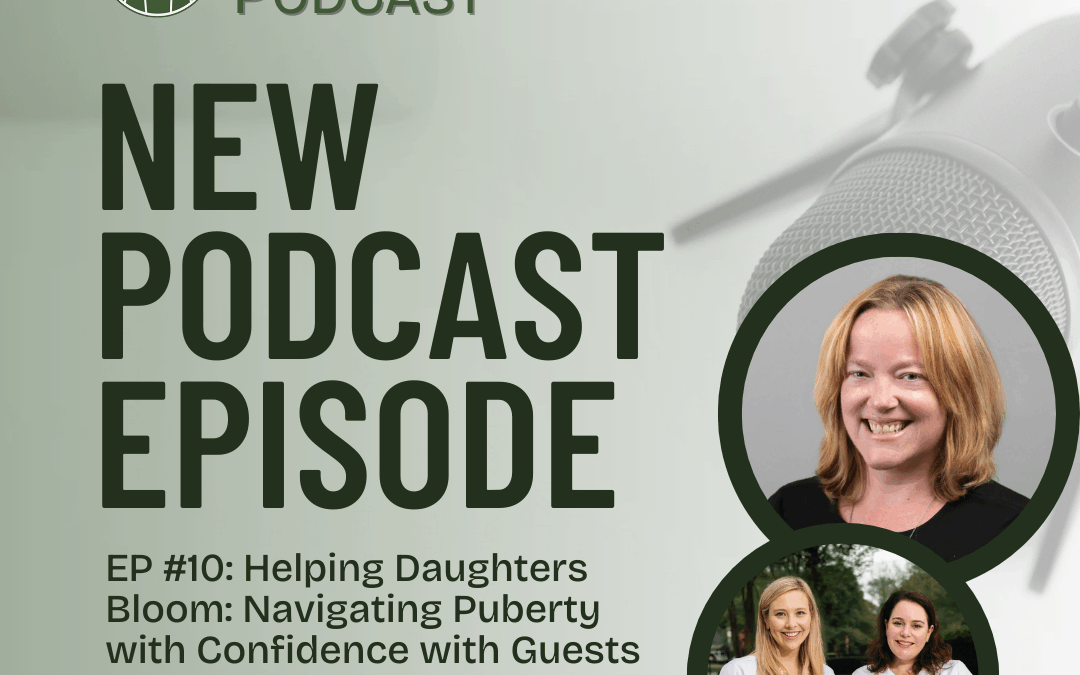Podcast Episode #10: Helping Daughters Bloom: Navigating Puberty with Confidence with Guests Dr. Nancy Wood and Dr. Quin Bixler of In Full Bloom, MD
The Herlihy Family Law Podcast, hosted by attorney Alison Herlihy of Herlihy Family Law, recently welcomed two physicians who are making a big impact in family education: Dr. Nancy Wood, a pediatrician, and Dr. Quin Bixler, an OB-GYN. Together, they co-founded In Full Bloom, MD, a resource dedicated to helping families approach the changes of puberty with confidence, clarity, and compassion.
Why Puberty Conversations Matter
Puberty is often a source of anxiety for both children and caregivers. Parents worry about saying the wrong thing or not knowing how to start the conversation, while children may feel confused or unprepared for the physical and emotional changes they are experiencing.
Dr. Wood and Dr. Bixler emphasize that these discussions don’t have to be perfect or one-time events. Instead, puberty should be approached as an ongoing, open conversation that builds trust and strengthens the parent–child relationship. When children receive accurate, age-appropriate information from trusted adults, they are more likely to feel empowered and less fearful about the changes ahead.
Moving Beyond Outdated Resources
Many families rely on outdated or overly simplified resources that don’t fully prepare children for puberty. Traditional videos and books often fall flat—either too medical and sterile, or too “cheesy” to resonate. The goal of In Full Bloom, MD is to bridge that gap with medically accurate, accessible, and relatable content that addresses not only anatomy and physiology, but also hygiene, emotional changes, body image, and overall well-being.
By presenting this information in a way that children can understand—and parents can confidently share—the program helps families avoid confusion and misinformation while creating space for honest dialogue.
Practical Guidance for Parents
One of the most helpful aspects of In Full Bloom’s approach is that it equips caregivers with the tools to lead the conversation in their own way. Practical tips include:
- Start Early and Keep Talking: Beginning discussions around ages eight or nine is ideal, but it’s never too late to begin. Conversations should evolve as children grow and new questions arise.
- Ask First: Sometimes children know more than parents expect. Asking what they already know can guide the discussion and help correct any misconceptions.
- Create Space: Set aside one-on-one time without siblings or distractions to ensure the child feels valued and safe to ask questions.
- Normalize the Process: Remind children that everyone’s body develops differently, and all changes are a normal part of growing up.
Preparing to Bloom: A Helpful Resource
To make these conversations easier, Dr. Wood and Dr. Bixler created Preparing to Bloom, a self-paced video course that walks caregivers through the essential aspects of puberty education. Covering topics from anatomy to hygiene to emotional changes, the course provides families with a roadmap to navigate this life stage with greater confidence.
The program also reinforces the importance of communication. When parents are prepared, children see them as trustworthy guides—not only for puberty, but for future, more complex topics as well.
Building Confidence and Empowerment
At its core, the mission of In Full Bloom, MD is to empower families. When parents feel confident in what they are teaching, children, in turn, feel empowered to understand their bodies and face change without fear. This mutual confidence strengthens bonds within families and sets the stage for healthier communication as children enter their teenage years and beyond.
Learn More
- 🎧 Listen to more expert conversations on the Herlihy Family Law Podcast
- ⚖️ Get trusted family law guidance at herlihyfamilylaw.com
- 🌸 Explore puberty resources and courses at In Full Bloom, MD

